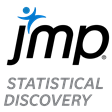Key industry figures will share insights into how they use data analytics to drive innovation in a live-streamed roundtable event on 26 September
Organisations that demand a high level of product and process innovation are constantly under pressure. They need to discover insights, accelerate the pace of innovation, reduce costs and get to market faster than the competition, then continually improve products and gain efficiencies throughout production.

With the advent of big data, Internet of Things and Industry 4.0, are organisations taking advantage of the data available to them? Are they using analytics to counteract the challenges they face and drive momentum in a robust and scalable way? In the 2016 report The Age of Analytics, consultancy firm McKinsey estimated that manufacturing industries had achieved only 20–30% of the potential value from data and analytics that had been identified by 2011. It is still unclear whether that proportion has changed. What can businesses do to enable their experts to find solutions hidden in their data, as well as consider what additional data they need to collect? By unlocking data hidden in existing systems, encouraging experimentation and providing the tools and support for effective data analysis, industry can empower R&D and manufacturing experts to make faster decisions – which creates the momentum for success.
Organisations expect R&D and manufacturing teams to help them increase profit margins, reduce waste, capture market share and outperform the competition. These efforts also need to support current strategic initiatives and help the business impress customers and shareholders. It can lead to an ever-increasing amount of stress on the teams responsible for delivering results, especially if those teams are not able to work productively with the data they generate and collect. R&D and manufacturing professionals want ways to improve their personal effectiveness – in short, to have the tools and support to do their jobs better.
We don’t want to build a data science silo in companies. In every team we need a few people who have a clue about data science
David Kriesel, data scientist and technology engineer
Professional success may mean finding robust solutions to problems more quickly and being able to communicate these solutions persuasively to colleagues. It may involve meeting project milestones reliably and predictably. Having the ability to do a good job helps to drive team success and create better standing within the organisation. It can mean changing how things have always been done and adopting new tools and techniques – which is why transformation is not always a straightforward process.
Overcoming the barriers to change
Making sure the right data is in the hands of the people who can capitalise on it can be a significant boost to achieving product and process innovation. In some organisations, data scientists are not always experts in the data they are expected to work with. Similarly, subject matter experts may not be familiar with the analytics techniques required to solve problems and reveal opportunities. This can create tension and inefficiency within a team. David Kriesel, a data scientist and technology engineer, predicts that in 10 years more data science will be performed by employees who have learned the basics of data analytics through their work rather than through formal training. ‘We don’t want to build a data science silo in companies. We need to have it in the field, in every team a few people who have a clue about data science,’ says Kriesel.
I’m a chemist not a statistician, and I’ve come to appreciate how analytics makes things so quick and easy
Jim Daily, global technical key account manager at BASF
When chemists at BASF started researching a replacement for phosphates in detergents, they cut design time by 75% by performing multifactor experiments on various mixtures. ‘I’m a chemist not a statistician, and I’ve come to really appreciate how [analytics] makes things so quick and easy,’ says Jim Daily, global technical key account manager at chemical producer BASF.

By empowering the experts closest to the data to use it effectively and ensure they design effective experiments to accelerate learning from data, an organisation can unlock innovation and free up data scientists to tackle further challenges. Even with the right tools and skills for analysis, the next great innovation may be locked in data that is not being investigated. Industry 4.0 – characterised by wireless technology and automated production processes – means some industries produce high volumes of data but lack the ability to use it effectively. Improving access to this data – the hidden factory – and providing the means to analyse it, could unlock the information required to make significant developments ahead of the competition.
Accelerating innovation
To succeed in this age of acceleration, organisations need to enable data and analytics capabilities within their expert teams, to drive success and build momentum. Empowering teams to excel as experts in their field – where they can be more creative, effective and efficient – drives the momentum that innovative companies demand.
Stan Higgins will be discussing these issues and ways to overcome them in a roundtable event with business leaders on 26 September 2019 in London. Higgins is a business and technical consultant with 48 years’ experience in process industries and was awarded an OBE for his work promoting the UK’s chemical process manufacturing industry.

















No comments yet